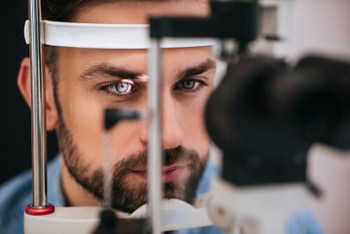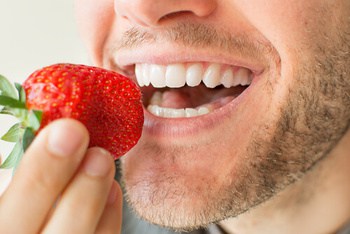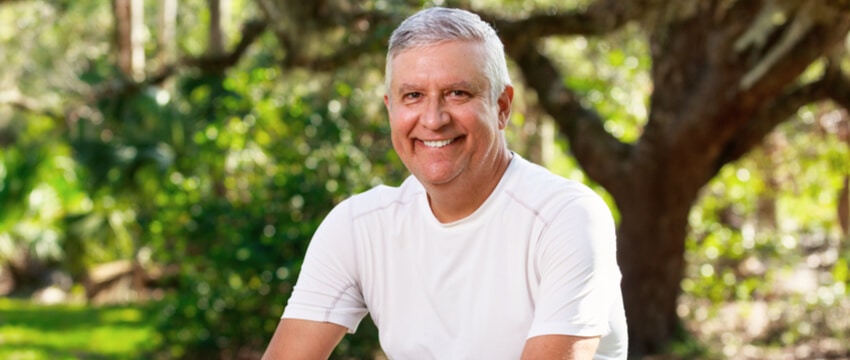Food Not to Eat After Cataract Surgery: Navigating Your Diet for a Speedy Recovery
When you’ve just undergone cataract surgery, your focus naturally shifts towards ensuring a smooth and speedy recovery. Understanding the relationship between diet and healing is crucial in this phase. While a balanced and nutritious diet can significantly promote healing, certain foods might hinder your recovery process. In this detailed guide, we delve into the foods not to eat after cataract surgery and highlight dietary choices that support a successful recovery post-surgery.
Understanding Cataract Surgery
Cataract surgery entails extracting the eye’s cloudy natural lens and substituting it with a synthetic lens. This procedure is remarkably successful in vision restoration. The recovery period post-cataract surgery is critical for ensuring the success of the surgery and preventing post-surgical complications. Part of managing a successful recovery includes paying close attention to your diet.
The Importance of Diet in Post-Surgery Recovery
 A healthy and balanced diet plays a pivotal role in the healing process. Foods rich in essential nutrients not only support eye health but also bolster the immune system, reduce inflammation, and promote optimal healing. Conversely, indulging in unhealthy dietary choices can exacerbate inflammation, increase blood pressure, and slow down the recovery process.
A healthy and balanced diet plays a pivotal role in the healing process. Foods rich in essential nutrients not only support eye health but also bolster the immune system, reduce inflammation, and promote optimal healing. Conversely, indulging in unhealthy dietary choices can exacerbate inflammation, increase blood pressure, and slow down the recovery process.
Foods Not to Eat After Cataract Surgery
Here’s a list of foods to avoid to ensure a smooth recovery after your cataract surgery:
Highly Processed Foods and Sugary Snacks
Highly processed and sugary foods are notorious for their low nutritional value and high levels of unhealthy fats, refined carbohydrates, and excessive sugar intake. These food choices can cause blood sugar spikes and trigger inflammation, hindering the body’s natural healing process.
Fried Foods and Junk Food
Fried foods and most types of junk food contain unhealthy and inflammatory fats. Regular consumption of foods like french fries and fried chicken can impede your body’s natural healing mechanism and contribute to increased eye pressure, which is detrimental following eye surgery.
Foods High in Unhealthy Fats
Saturated fats and trans fats, present in specific meats, full-fat dairy products, and certain processed foods, may heighten the likelihood of cataract development and impede recovery by fostering inflammation and damaging blood vessels.
Spicy Foods
Spicy foods can temporarily increase blood pressure and cause discomfort, which is not advisable during the recovery period. It’s best to avoid spicy dishes to ensure a more comfortable healing process.
Alcohol Consumption
It’s recommended to limit alcohol consumption during the recovery period. Alcohol can dehydrate your body, interfere with the effectiveness of medications, and potentially increase the risk of complications after surgery.
Excessive Salt Intake
Too much salt in your diet can lead to fluid retention and increase blood pressure, negatively affecting the recovery process. High salt intake can also exacerbate conditions that affect eye health.
Foods to Embrace for a Successful Recovery
While it’s important to know what foods to avoid, focusing on a nutritious diet that supports healing is equally crucial. Here are some dietary recommendations:
Protein-Rich Foods
Incorporate lean proteins like chicken, fish, tofu, and beans into your diet. These foods are essential for repairing tissue and promoting a faster healing process.
Healthy Fats
Choose nutritious sources of fats like avocados, nuts, seeds, and olive oil. These fats have anti-inflammatory properties that can support eye health and reduce inflammation.
Fresh Fruits and Green Leafy Vegetables
Fresh fruits and green leafy vegetables are packed with vitamins, minerals, and antioxidants. Vitamin C rich foods like citrus fruits, vitamin E sources like sunflower seeds, and beta-carotene found in sweet potatoes and carrots are particularly beneficial for eye health.
Whole Grains and Foods Rich in Omega-3
Whole grains like brown rice and quinoa provide essential nutrients without the negative impacts of refined carbohydrates. Omega-3 fatty acids, found in fish and flaxseeds, are known for their anti-inflammatory properties and can support overall vision health.
Emphasising a Nutritious Diet for Eye Health and Recovery
Essential Nutrients for Optimal Healing
To promote optimal healing, your diet should include foods rich in:
- Vitamin C: This antioxidant fortifies the immune system and plays a pivotal role in tissue regeneration. Good sources include citrus fruits, berries, and capsicums.
- Vitamin E: Known for its anti-inflammatory properties, vitamin E can help reduce the risk of post-surgical complications. Find it in nuts, seeds, and green leafy vegetables.
- Omega-3 Fatty Acids: Essential for eye health, omega-3s reduce inflammation and support cell repair. Incorporate fish, flaxseeds, and walnuts into your diet for optimal nutrition.
- Zinc: This mineral supports immune function and wound healing. Foods like lean meat, poultry, seafood, and legumes are excellent sources.
Hydration is Key
Proper hydration is crucial for healing. Water facilitates the transport of nutrients and the removal of waste products from your body. Ensure you’re drinking plenty of fluids throughout the day, opting for water or herbal teas over sugary beverages.
Lifestyle Adjustments for a Healthy Recovery
Physical Activity
While heavy exercise might not be recommended immediately following surgery, gentle activities such as walking can promote circulation and overall well-being. Always follow your doctor’s advice regarding physical activity during your recovery period.
Sleep and Rest
Adequate rest is crucial for healing. Ensure you’re getting enough sleep at night and taking rests throughout the day as needed. Your body repairs itself during sleep, making it a critical component of a speedy recovery.
Stress Management
Stress can negatively impact your recovery process. Engage in stress-reducing activities such as meditation, breathing exercises, or gentle yoga to support your overall health and well-being during this time.
Manage Chronic Conditions
Conditions like diabetes and high blood pressure can lead to eye problems if not managed properly. Work with your healthcare provider to keep these conditions under control through diet, exercise, and medication as necessary.
Mental Well-being
Stress can manifest physically, affecting even your eyes. By embracing activities that nurture mental well-being like hobbies, social engagements, or mindfulness exercises, you can bolster your health and foster a positive long-term recovery.
Building a Foundation for Long-Term Eye Health
Regular Eye Check-ups
Consistent follow-ups with your eye care professional are essential. These check-ups can help catch any potential issues early and keep your eyes in the best condition possible. Your doctor can also provide tailored advice on diet and lifestyle adjustments based on your eye health status.
Protective Measures
Shield your eyes from damaging UV rays by donning sunglasses while outside. If you spend a lot of time in front of screens, take regular breaks to reduce eye strain. Additionally, ensure your living and workspaces are well-lit to avoid putting unnecessary strain on your eyes.
Smoking Cessation
Smoking greatly heightens the risk of cataracts and other eye ailments. For smokers, seeking assistance to quit can profoundly benefit both eye health and overall well-being.
Frequently Asked Questions About Diet and Recovery After Cataract Surgery
Recovery from cataract surgery prompts many questions, especially regarding diet and lifestyle adjustments. Here are some frequently asked questions that can provide further insight into how to navigate this crucial period for optimal healing and long-term eye health.
Can I immediately return to my regular diet after cataract surgery?
While there’s no one-size-fits-all answer, it’s generally recommended to maintain a balanced and nutritious diet immediately after surgery. Focus on incorporating anti-inflammatory foods and those rich in essential nutrients to support the healing process. Avoid foods high in unhealthy fats, excessive sugar, and sodium, as they can hinder recovery.
How long after cataract surgery should I avoid alcohol?
It’s advisable to limit alcohol consumption for at least the first week after surgery or until your follow-up appointment. Alcohol can interfere with medication, dehydrate your body, and potentially slow down the healing process. Your ophthalmologist can offer tailored guidance according to your individual circumstances.
Are there any supplements I should take to improve my recovery?
While a balanced diet is the best way to obtain necessary nutrients, your doctor may recommend supplements if you’re unable to meet your nutritional needs through diet alone. Nutritional supplements such as omega-3 fatty acids, vitamin C, vitamin E, and zinc may offer benefits, yet it’s advisable to seek guidance from your healthcare provider before introducing any new supplement.
Can diet really affect my eye health after surgery?
Yes, diet plays a significant role in not only your recovery after surgery but also in the long-term health of your eyes. Nutrients like vitamins C and E, omega-3 fatty acids, and antioxidants support healing, reduce inflammation, and can help protect against further eye conditions.
What foods are best for reducing inflammation and promoting eye health?
Foods abundant in omega-3 fatty acids like salmon and flaxseeds, antioxidants such as berries, nuts, and dark leafy greens, and vitamins C and E found in citrus fruits, almonds, and sunflower seeds, are superb choices for alleviating inflammation and promoting eye health.
How does hydration affect recovery after cataract surgery?
Ensuring proper hydration is vital for general well-being and can particularly assist in postoperative recovery. Proper hydration helps maintain the balance of fluids in the eye, supports detoxification, and facilitates the proper function of tissues and cells during the healing process.
Is caffeine consumption safe after cataract surgery?
Moderate caffeine consumption is generally considered safe after cataract surgery. However, because caffeine can potentially increase eye pressure and cause dehydration, it’s wise to consume it in moderation and prioritise hydrating fluids like water and herbal teas.
What should I do if I have dietary restrictions?
If you have dietary restrictions due to allergies, religious beliefs, or personal choices, consider consulting with a nutritionist or dietitian. They can help tailor a meal plan to ensure you’re receiving all the necessary nutrients to support your recovery and overall health without compromising your dietary restrictions.
Conclusion
Maintaining a healthy and balanced diet after cataract surgery is key to a smooth recovery and successful outcome. By avoiding certain foods that can hinder the healing process and embracing a nutritious diet rich in essential nutrients, you can promote healing, reduce the risk of complications, and support your overall health. Bear in mind that a nutritious diet is more than just aiding recovery; it serves as a fundamental aspect of a healthy lifestyle, potentially averting future conditions such as cataracts.
Navigating your diet post-surgery doesn’t have to be a daunting task. Armed with the knowledge of what foods to avoid and what foods to include, you’re well on your way to a speedy and successful recovery. Contact us today at (03) 9070 3580 to learn more about the importance of a balanced diet after cataract surgery and how we can support you in your journey to better eye health.
Note: Any surgical or invasive procedure carries risks. Before proceeding, you should seek a second opinion from an appropriately qualified health practitioner.
References:
- https://www.healthline.com/health/food-not-to-eat-after-cataract-surgery
- https://www.medicalnewstoday.com/articles/food-not-to-eat-after-cataract-surgery







Leave a Reply
Want to join the discussion?Feel free to contribute!